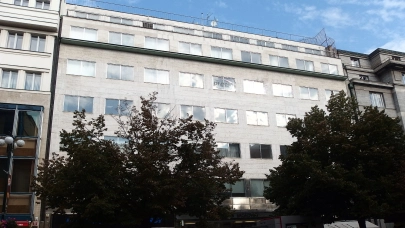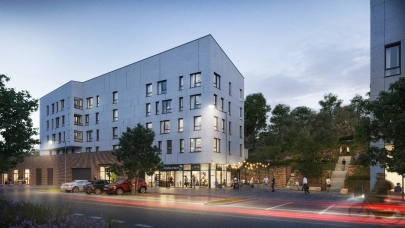
As a result of the war in Ukraine, almost all companies are dealing with completely new situations and facing unexpected problems. The experts of the first panel of Bratislava Property Forum 2022 discussed how investment strategies have to adapt to the new situation.
All speakers agreed right at the beginning of the panel that the economic "winner" of the last decade is undoubtedly logistics and e-commerce and COVID-19 has further accelerated the sector’s growth. Nevertheless, the energy crisis and the war with all its humanitarian and economic aspects, have created an entirely different situation to which market players have to adapt.
The pandemic has accelerated several specific trends in the office segment too, such as the abundant use of the “home office” and the adaptation of hybrid workplace strategies, explained Ján Miček, Senior Investment Analyst in Capital Markets from Cushman & Wakefield, the moderator of the discussion. Nevertheless, there is no reason to fear that there won’t be a need for offices in the future, all experts said.
Even in these times when a lot of employees from a wide range of companies have been working from home for a long time, we see that offices will not die. Nevertheless, it is true that offices are changing and so does the way how people work. The changes are towards some kind of hybrid work, the combination of WFH and regular team and personal meetings in the office, noted Martin Šmigura, Director at Wood & Company.
Vladimír Bolek from IAD Investments mentioned that work regimes differ by company type. Some companies allow 2-3 days of working from home, some want more people in the office and offer them various services and possibilities. So now we see that companies, according to Vladimír Bolek, are trying to discover the right approach, how to organize work, how to take care of the space and how to take care of employees. This also creates a new situation for landlords who have to act more as business partners for tenants too.
In a further discussion on the effects of the current rise in energy, materials and other commodity prices on the real estate market, Dejan Mansfeld-Rupnik, Managing Director of ECE European City Estates Group, briefly summarised all aspects that affect the construction of new buildings, their prices and how this is reflected in rental growth. Historically, in the past, construction costs were always rising. If you look back many years, there's rarely a year when construction costs are not rising faster than the headline inflation. He expects to see, in combination with the lack of labour and the lack of availability of materials, a strong impact on the developer side.
According to Dejan Mansfeld-Rupnik, office rental growth in the last 10 years often did not even cover inflation. But as he stated, this will change in the future. Mainly because of the fact that construction companies are not able to cover the rising construction costs endlessly. Given these negative developments over the past decade, more than two years of the pandemic and now the war in Ukraine, we will have to consider much more carefully how to finance low yield investments, concluded Dejan Mansfeld-Rupnik.




